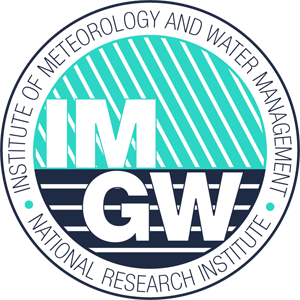ORIGINAL PAPER
A modeling framework to assess the impact of climate change on a river runoff
1
Wroclaw University of Enviromental and Life Sciences (WUELS)
2
Institute of Meteorology Hydrology and Water Management National Research Institute
3
Wroclaw University of Environmental and Life Science, Department of Mathematics
Publication date: 2015-02-18
Corresponding author
Leszek Kuchar
Wroclaw University of Enviromental and Life Sciences (WUELS), ul. Grunwaldzka 53, 50-357 Wrocław, Poland
Wroclaw University of Enviromental and Life Sciences (WUELS), ul. Grunwaldzka 53, 50-357 Wrocław, Poland
Meteorology Hydrology and Water Management, 2(2),49-64
KEYWORDS
TOPICS
ABSTRACT
Global climate change is anticipated to have consequences on water resources and the envi-ronment both
at global and local/regional levels. Efforts towards proper management of future water resources and resolving potential water-related conflicts require the formulation of appropriate techniques to downscale the output of global climate models (GCM) to local conditions for hydrologic prediction. The paper presents an integrated framework for modeling the impact of climate change on river runoff that combines methodology for downscaling climate change scenarios for a basin scale with a hydrological model to estimate the impact of climate change on a river runoff. The modeling framework uses long-term observations of meteorological and hydrological variables together with a climate change scenario to provide a projection of future flows for the specified time horizon. The framework is based on a spatial weather generator and a distributed rainfall-runoff model. Such a configuration enables a reflection of the uncertainty of future conditions by running multiple realizations of future conditions, and also take into account the spatial variability of hydrological properties in the catchment by maintaining the physical details at a given grid size. The performance of the framework was presented for the Kaczawa basin that is one of the main left bank tributaries of the Odra River – the second biggest river in Poland. The results show simulated changes of the future river flow regime caused by climatic changes for two time horizons: 2040 and 2080.
Share
RELATED ARTICLE
We process personal data collected when visiting the website. The function of obtaining information about users and their behavior is carried out by voluntarily entered information in forms and saving cookies in end devices. Data, including cookies, are used to provide services, improve the user experience and to analyze the traffic in accordance with the Privacy policy. Data are also collected and processed by Google Analytics tool (more).
You can change cookies settings in your browser. Restricted use of cookies in the browser configuration may affect some functionalities of the website.
You can change cookies settings in your browser. Restricted use of cookies in the browser configuration may affect some functionalities of the website.


